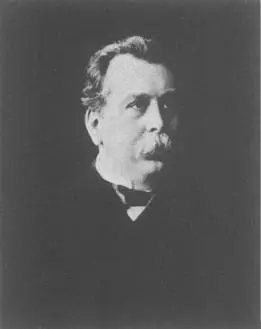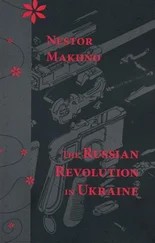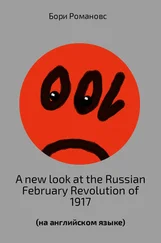Richard Pipes - The Russian Revolution
Здесь есть возможность читать онлайн «Richard Pipes - The Russian Revolution» весь текст электронной книги совершенно бесплатно (целиком полную версию без сокращений). В некоторых случаях можно слушать аудио, скачать через торрент в формате fb2 и присутствует краткое содержание. Жанр: Старинная литература, на английском языке. Описание произведения, (предисловие) а так же отзывы посетителей доступны на портале библиотеки ЛибКат.
- Название:The Russian Revolution
- Автор:
- Жанр:
- Год:неизвестен
- ISBN:нет данных
- Рейтинг книги:3 / 5. Голосов: 1
-
Избранное:Добавить в избранное
- Отзывы:
-
Ваша оценка:
- 60
- 1
- 2
- 3
- 4
- 5
The Russian Revolution: краткое содержание, описание и аннотация
Предлагаем к чтению аннотацию, описание, краткое содержание или предисловие (зависит от того, что написал сам автор книги «The Russian Revolution»). Если вы не нашли необходимую информацию о книге — напишите в комментариях, мы постараемся отыскать её.
The Russian Revolution — читать онлайн бесплатно полную книгу (весь текст) целиком
Ниже представлен текст книги, разбитый по страницам. Система сохранения места последней прочитанной страницы, позволяет с удобством читать онлайн бесплатно книгу «The Russian Revolution», без необходимости каждый раз заново искать на чём Вы остановились. Поставьте закладку, и сможете в любой момент перейти на страницу, на которой закончили чтение.
Интервал:
Закладка:

3. Viacheslav Plehve.
On assuming office, Plehve tried to win over the more conservative wing of the zemstvo movement. But he persisted in treating zemstvo deputies as government functionaries and any sign of independence on their part as insubordination. His effort to make the zemstva a branch of the Ministry of the Interior not only lost him the sympathy of the zemstvo conservatives but radicalized the zemstvo constitutionalists, with the result that by 1903 he had to give up his one effort at conciliation.
Plehve’s standing with society suffered a further blow with the outbreak of a vicious anti-Jewish pogrom on Easter Sunday (April 4) of 1903 in the Bessarabian town of Kishinev. Some fifty Jews were killed, many more injured, and a great deal of Jewish property looted or destroyed. Plehve made no secret of his dislike of Jews, which he justified by blaming them for the revolutionary ferment (he claimed that fully 40 percent of the revolutionaries were Jews). Although no evidence has ever come to light that he had instigated the Kishinev pogrom, his well-known anti-Jewish sentiments, as well as his tolerance of anti-Semitic publications, encouraged the authorities in Bessarabia to believe that he would not object to a pogrom. Hence they did nothing to prevent one and nothing to stop it after it had broken out. This inactivity as well as the prompt release of the Christian hooligans strengthened the widely held conviction that he was responsible. Plehve further alienated public opinion with his Russificatory policies in Finland and Armenia.
The epitome of Plehve’s regime was a unique experiment in police-operated trade unions, known as “Zubatovshchina,” after S. V. Zubatov, the chief of the Moscow political police ( Okhrana ). It was a bold attempt to remove Russian workers from the influence of revolutionaries by satisfying their economic demands. Russian workers had been stirring since the 1880s. The nascent labor movement was apolitical, confining its demands to improvements in working conditions, wages, and other typically trade-unionist issues. But because in Russia of that time any organized labor activity was illegal, the most innocuous actions (such as the formation of mutual aid or educational circles) automatically acquired a political and, therefore, seditious connotation. This fact was exploited by radical intellectuals who developed in the 1890s the “agitational” technique which called for inciting workers to economic strikes in the expectation that the inevitable police repression would drive them into politics. 19
Zubatov was a onetime revolutionary who had turned into a staunch monarchist. Working under Plehve, he had mastered the technique of psychologically “working over” revolutionary youths to induce them to cooperate with the authorities. In the process he learned a great deal about worker grievances and concluded that they were politically harmless and acquired a political character only because existing laws treated them as illegal. He thought it absurd for the government to play into the hands of revolutionaries by transforming the workers’ legitimate economic aspirations into political crimes. In 1898, he presented a memoir to the police chief of St. Petersburg, D. F. Trepov, in which he argued that in order to frustrate radical agitators, workers had to be given lawful opportunities to improve their lot. Radical intellectuals posed no serious threat to the system unless they gained access to the masses, and that could be prevented by legitimizing the workers’ economic and cultural aspirations. 20He won over Trepov and other influential officials, including Grand Duke Sergei Aleksandrovich, the ultrareactionary governor-general of Moscow, with whose help he began in 1900 to organize official trade unions. 21This innovation ran into opposition from those who feared that police-sponsored labor organizations not only would annoy and confuse the business community but in the event of industrial conflicts place the government in a most awkward position of having to support workers against their employers. Plehve himself was skeptical, but Zubatov enjoyed powerful backing of persons close to the Tsar. Great things were expected of his experiment. In August 1902, Zubatov was promoted to head the “Special Section” of the Police Department, which placed him in charge of all the Okhrana offices. He expanded the Okhrana network beyond its original three locations (St. Petersburg, Moscow, and Warsaw) to the provincial towns, assigning it many functions previously exercised by other police groups. He required officials involved in political counterintelligence to be thoroughly familiar with the writings of the main socialist theoreticians as well as the history of European socialist parties. 22
Zubatov’s scheme seemed vindicated by the eagerness with which workers joined the police-sponsored trade unions. In February 1903, Moscow witnessed the extraordinary spectacle of 50,000 workers marching in a procession headed by Grand Duke Sergei to the monument of Alexander II. Jewish workers in the Pale of Settlement, who suffered from a double handicap in trying to organize, flocked to Zubatov’s unions in considerable numbers.
The experiment nearly came to grief, however, in the summer of 1903, following the outbreak in Odessa of a general strike. When Plehve ordered the police to quell the strike, the local police-sponsored trade union collapsed: by backing the employers, the authorities revealed the hollowness of the whole endeavor. The following month Plehve dismissed Zubatov, although he allowed some of his unions to continue and even authorized some new ones.*
In January 1904, Russia became involved in a war with Japan. The origins of the Russo-Japanese conflict have long been distorted by the self-serving accounts of Sergei Witte, the relatively liberal Minister of Finance and Plehve’s bitter enemy, which assigned the responsibility partly to reactionaries anxious to divert attention from internal difficulties (“We need a small, victorious war to avert a revolution” was a sentiment he attributed to Plehve) and partly to unscrupulous adventurers close to the Court. It has since become known that Plehve did not want a war and that the adventurers played a much smaller role than Witte would have had posterity believe. In fact, Witte himself bore a great deal of the blame for the conflict. 23As the main architect of Russia’s industrialization, he was eager to ensure foreign markets for her manufactured goods. In his judgment, the most promising export outlets lay in the Far East, notably China. Witte also believed that Russia could provide a major transit route for cargo and passengers from Western Europe to the Pacific, a potential role of which she had been deprived by the completion in 1869 of the Suez Canal. With these objectives in mind, he persuaded Alexander III to authorize a railway across the immense expanse of Siberia. The Trans-Siberian, begun in 1886, was to be the longest railroad in the world. Nicholas, who sympathized with the idea of Russia’s Far Eastern mission, endorsed and continued the undertaking. Russia’s ambitions in the Far East received warm encouragement from Kaiser Wilhelm II, who sought to divert her attention from the Balkans, where Austria, Germany’s principal ally, had her own designs. (In 1897, as he was sailing in the Baltic, Wilhelm signaled Nicholas: “The Admiral of the Atlantic greets the Admiral of the Pacific.”)
In the memoirs he wrote after retiring from public life, Witte claimed that while he had indeed supported a vigorous Russian policy in the Far East, he had in mind exclusively economic penetration, and that his plans were wrecked by irresponsible generals and politicians. This thesis, however, cannot be sustained in the light of the archival evidence that has surfaced since. Witte’s plans for economic penetration of the Far East were conceived in the spirit of imperialism of the age: it called for a strong military presence, which was certain sooner or later to violate China’s sovereignty and come in conflict with the imperial ambitions of Japan. This became apparent in 1895, when Witte had the idea of shortening the route of the Trans-Siberian Railroad by cutting across Chinese Manchuria. He obtained China’s consent with bribes given the Chinese statesman Li Hung-chang and the promise of a defensive alliance. An agreement to this effect was signed in June 1896 during Li Hungchang’s visit to Moscow to attend the coronation of Nicholas II. The signatories pledged mutual help in the event of an attack on either of them or on Korea. China allowed Russia to construct a line to Vladivostok across Manchuria, on the understanding that her sovereignty in that province would be respected.
Читать дальшеИнтервал:
Закладка:
Похожие книги на «The Russian Revolution»
Представляем Вашему вниманию похожие книги на «The Russian Revolution» списком для выбора. Мы отобрали схожую по названию и смыслу литературу в надежде предоставить читателям больше вариантов отыскать новые, интересные, ещё непрочитанные произведения.
Обсуждение, отзывы о книге «The Russian Revolution» и просто собственные мнения читателей. Оставьте ваши комментарии, напишите, что Вы думаете о произведении, его смысле или главных героях. Укажите что конкретно понравилось, а что нет, и почему Вы так считаете.












